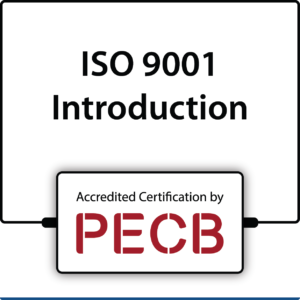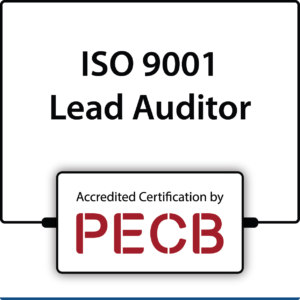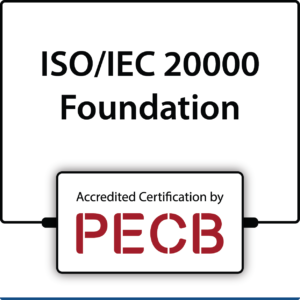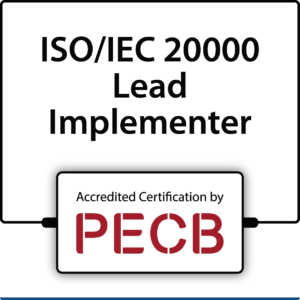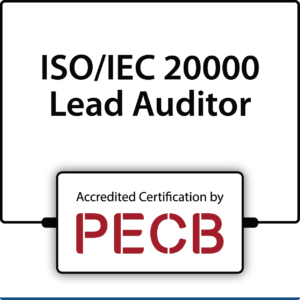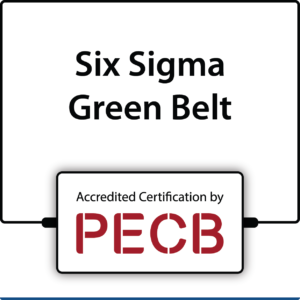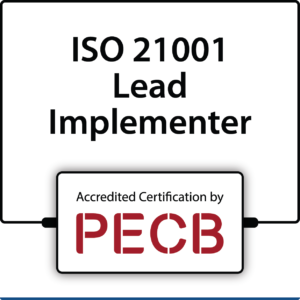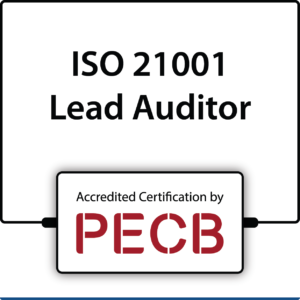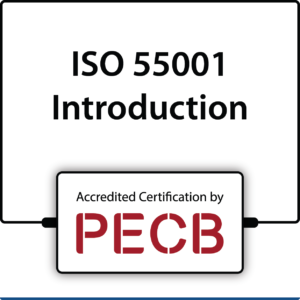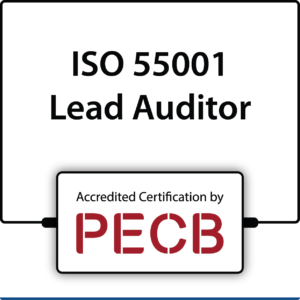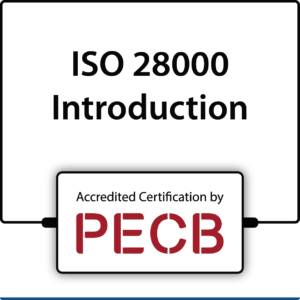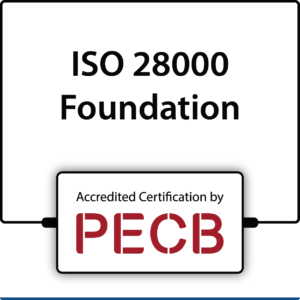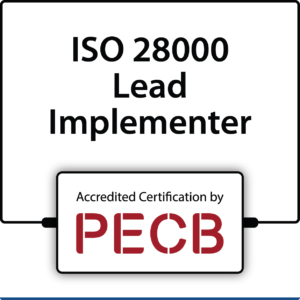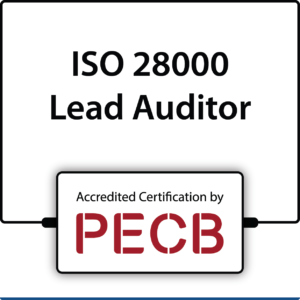QUALITY AND MANAGEMENT
In our current globalized economy and complex supply chains, John Ruskin’s adage, “Quality is never an accident. It is always the result of intelligent effort” is even more relevant today than it was on the day he said it. Organizations cannot rely on chance and hope to deliver quality products and services; instead, they must establish a consistent and planned approach for managing quality. With over one million certified organizations worldwide, ISO 9001 remains the world’s most well-known standard, which provides organizations with a structured approach for quality management and helps them consistently provide products and services that meet and, where possible, exceed customer requirements.
What is ISO 9001?
Published initially in 1987, ISO 9001 is the first international management system standard (MSS) that specifies the requirements for the establishment, implementation, operation, maintenance, and continual improvement of a quality management system (QMS) in an organization.
ISO 9001 is based on seven quality management principles and it aims to help organizations be more efficient and improve customer satisfaction. A common misconception is that ISO 9001 is intended for larger companies and manufacturers. However, the requirements of ISO 9001 are generic and applicable to any organization, regardless of its type, size, or the products or services it provides.
Although ISO 9001 was initially published in 1987, it has undergone several revisions in order to keep up with good practices and trends in the business world and ensure continuous suitability. The latest (5th) edition of the standard is titled ISO 9001:2015 Quality Management Systems – Requirements. After running a survey with over 8,000 respondents, in May 2021, the ISO subcommittee for quality systems (ISO/TC 176/SC 2) confirmed that ISO 9001:2015 is still relevant and recommended that it remains unchanged.

Figure 1: ISO 9001 publication and revision timeline
Why is ISO 9001 important for organizations?
Ever since its initial publication, ISO 9001 has been the most recognized and widely used management system standard. A QMS based on ISO 9001 enables organizations to ensure success in the long term. In addition, a certified QMS provides additional assurance to customers and business associates, which further improves the business of an organization.
Even though ISO 9001 sets the minimum requirements that must be met, it still allows organizations to tailor the QMS to their needs. Thus, organizations should determine their overall context in order to identify issues, constraints, and opportunities that are specific to their context. In addition, they should set objectives and establish processes which contribute to the achievement of those objectives.
A distinct feature of a QMS based on ISO 9001 is that it puts customers first. “Meeting customers’ needs and exceeding their expectations” is engraved in the quality management principles, and is implied continuously on the requirements stated in clauses 4 to 10 of the standard. As such, organizations that implement and establish a QMS based on ISO 9001 will maintain the focus on their customers by continuously identifying their needs and requirements, obtaining feedback from them, and continually improving their products and services to fulfill their needs. This focus on customer satisfaction is one of the key factors that have allowed the ISO 9001 to achieve the landmark status.
Like most of the management system standards, ISO 9001 is structured according to the High-Level Structure (HLS) and shares the common terms and core definitions. This alignment enables an easier integration with other management systems based on standards such as ISO 14001, ISO/IEC 20000-1, ISO/IEC 27001, ISO 22301, etc. Apart from ensuring consistency and reducing costs, integrating several management systems can improve the organization’s ability to successfully address other organizational commitments.
Benefits of ISO 9001 for organizations

Figure 2: Benefits of implementing a QMS based on ISO 9001
Why should you attend one of our ISO 9001 training courses?
While ISO 9001 can be used by organizations to obtain many benefits, many organizations are unable to fully realize the benefits of a QMS implementation. There are different factors which contribute to the inability to integrate the QMS into the organization’s processes. Such factors include, but are not limited to:
- The perception of the QMS as a system of documentation.
- The inability to identify nonconformities.
- The inability to ensure continual improvement.
PECB’s training courses, both lead implementer or lead auditor, are tailored to overcome such challenges.
Globally recognized, PECB certifications demonstrate an individual’s professional capabilities to contribute in an organization’s QMS, as an auditor, implementer, or QMS implementation team member.
Obtaining a certificate in ISO 9001:
- Distinguishes you from other quality management consultants/auditors
- Demonstrates your awareness and knowledge of an internationally recognized standard for the management of quality in organizations
- Demonstrates that you have the necessary competencies to guide and support organizations through the implementation and management of a QMS (PECB Certified ISO 9001 Lead Implementer)
- Demonstrates that you have the necessary competencies to assess the conformity of a QMS against the requirements of ISO 9001 and the organization’s own requirements (PECB ISO 9001 Lead Auditor)
- Qualifies you to conduct third-party certification audits on behalf of conformity assessment bodies (PECB ISO 9001 Lead Auditor)
- Provides you with opportunities to further improve your career in quality management, either as an auditor, implementer, or a member of auditing/implementation team
Why choose PECB for an ISO 9001 certification?
As a global provider of training, examination, and certification services, PECB aims to help you demonstrate your commitment and competence by providing you valuable education, evaluation, and certification against internationally recognized standards.
Our ISO 9001 Lead Auditor and ISO 9001 Lead Implementer certificates are accredited by International Accreditation Services (IAS). The IAS Accreditation Mark provides additional value to the certificate and allows you to capitalize on the worldwide recognition that IAS holds.
How do I get started?
PECB is excited to welcome you to our global network. We will assist you throughout the entire process in order to offer you a worthwhile experience.
Contact us to begin with the first step!
PECB Certified ISO 9001 available training courses
Enhance your knowledge and advance your career by participating in our ISO 9001 training courses. Check the training courses below and find the one that suits you best.
Have you ever taken the responsibility of organizing a surprise birthday party? Maybe you were in charge of planning the family camping trip? At work, were you given the task of creating a marketing plan, implementing changes to reduce operation costs, or introducing new software for client management? If you did any of these then you are already familiar with various aspects of project management and you have been developing the skills that project managers need. PECB’s ISO 21502 training courses aim to help you advance your project management skills and set you on a path to becoming a great project manager.
What is ISO 21502?
As an update of ISO 21500:2012, ISO 21502:2020 provides guidance that can help project managers and project-based organizations deliver projects successfully. The standard also provides high-level descriptions of practices that are effective in project management.
The guidance provided by ISO 21502 can be applied to any type of organization and all types of projects. Moreover, apart from project managers and executive management, the standard can be used by project sponsors and boards, auditors, and organizations that develop national or organizational standards or practices for project management.
Why is project management important for you?
The advent of remote work and project-based companies are expected to increase the demand for skilled project management professionals. Obtaining a professional certification in project management enables you to take advantage of the opportunities in an emerging work market. Additionally, project managers are needed across industries and a professional certification can be the first step toward a career focused in managing projects in specific industries, such as:
- Manufacturing
- Construction
- Services and information technology (IT)
- Education
- Management consulting
- Utilities
- Government
- Agriculture and mining
- Oil and gas
At the organizational level, ISO 21502 recommendations can help organizations optimize the use of their resources and while maximizing value creation; thus, achieving their intended outcomes. It also promotes employee collaboration and enhances communication among personnel, suppliers, and customers relevant to the project, which results in stakeholder engagement and customer satisfaction. Moreover, ISO 21502 can lead to better business decisions, including the prioritization of tasks for projects and mitigation of risks.
A career in project management will transform how you plan and undertake activities and tasks within the context of projects. As a trained and certified project manager, you will lead the project team, plan activities for the project, define the project objectives, scope, schedule, and budget, identify, assess, and treat risks, engage and communicate with stakeholders, and manage the overall implementation of the project.
Benefits of ISO 21502
By using ISO 21502 guidelines on project management, organizations and project managers will be able to:
- Transform their ideas into tangible or intangible deliverables
- Manage and engage stakeholders successfully when developing and implementing projects
- Initiate, plan, implement, control, and close projects with specific objectives, scope, resources
- Control changes to projects
- Manage organizational and societal changes that impact projects
- Conduct risk assessments regarding the project and manage identified risks
- Learn from project management activities
Changes made from ISO 21500:2012 to ISO 21502:2020
ISO 21502:2020 cancels and replaces ISO 21500:2012. The first edition of ISO 21502 has changed from process-based to practices and narrative-based format. In addition to the introductory clauses, ISO 21502 is made up of four main clauses:
- Clause 4 Project management concepts
- Clause 5 Prerequisites for formalizing project management
- Clause 6 Integrated project management practices
- Clause 7 Management practices for a project
Beside the structural change, the following aspects have been added to ISO 21502:

Why choose PECB?
As a global provider of training, examination, and certification services, PECB aims to help you demonstrate your commitment and competence by providing you valuable education, evaluation, and certification against internationally recognized standards.
Our ISO 21502 certifications represent peer recognition of your professional capabilities and demonstrate that you are able to manage and support projects by using efficient project management practices.
How do I get started with ISO 21502 training course?
If you want to learn from competent professionals about concepts and principles of project management and how to manage projects successfully, PECB training courses will meet your needs. We will assist you throughout the entire process in order to offer you a worthwhile experience.
Contact us to begin with the first step!
PECB Certified ISO 21502 available training courses
Improve your career in project management by taking part in our ISO 21502 training courses. Check the training courses below and find the one that suits you best.
What is ISO 13485?
As an international standard, ISO 13485 determines the requirements for the medical devices industry. This standard was established to be used by companies during the life cycle of medical devices, from the production to post-production, including decommission and disposal. However, ISO 13485 can also be operated by other parties such as certification bodies which can assist in the certification processes. ISO 13485 serves as a tool for organizations to develop and retain their processes efficiently. Organizations that are striving for continuous improvement will benefit from this standard by being able to provide safe and competent medical devices and achieve the trust of customers.
Why is Medical Devices Quality Management System important for you?
Being an ISO 13485 certified professional imposes your determination to offer qualitative products and services to your company and/or clients. Attaining the necessary knowledge and skills to operate an ISO 13485 framework demonstrates your commitment to helping your company ensure continuous improvement and better work processes. It also indicates that you understand the importance of the safety and performance of medical devices and how a medical devices quality management system can assure just that, consequently leading to customer satisfaction. Similarly, it can introduce you to new opportunities, such as working for large companies that offer quality products and services. These companies will value your knowledge and expertise on this standard, while enabling you to maximize your earning potential.
Benefits of ISO 13485 Medical Devices Quality Management System
By becoming an ISO 13485 certified professional, you will be able to:
- Increase the number of job opportunities
- Create new business connections
- Gain competitive advantage
- Increase effectiveness and lower costs
- Offer expertise on improving work processes
- Offer safer and more efficient medical devices
- Increase customer satisfaction

How do I get started with ISO 13485 Training?
If you are willing to take the challenge of obtaining an ISO 13485 certification, our experts will ensure a qualitative experience where your needs will be met, and you will become part of our global network.
Contact us to start with the first step
PECB Certified ISO 13485 training courses available
Acquire knowledge on Medical Devices Quality Management Systems through our PECB ISO 13485 training courses. Check below to find the training that suits you best:
What is ISO/IEC 17025?
The term IEC stands for International Electrotechnical Commission which in cooperation with ISO creates the specific system for global standardization. ISO/IEC 17025 is an international standard for testing and calibration laboratories. It was established with the aim of offering quality and improving the processes within laboratories. ISO/IEC 17025 has two key clauses; Management Requirements which are associated with the performance and efficiency of the Quality Management System inside the laboratory, and Technical Requirements which focus on the competencies of employees, testing methodology, equipment, and the test and calibration results.
Why is Laboratory Management System important for you?
Becoming certified against ISO/IEC 17025 demonstrates your commitment to implement the requirements of this standard. As a certified professional, you will enable laboratories to demonstrate they operate competently, and are able to generate valid results. In addition, you will be able to increase your job opportunities because there are many large laboratory companies which will value your comprehensive knowledge as a professional in this field. As a matter of fact, many organizations have started to offer contracts only to certified professionals and laboratories, as the majority of customers prefer to receive services from certified labs, consequently, enabling you to maximize your earning potential.
Benefits of ISO/IEC 17025 Laboratory Management System
By becoming an ISO 17025 certified professional, you will be able to:
- Improve your reputation
- Create new business connections
- Gain competitive advantage
- Increase laboratory effectiveness
- Gain access to more contracts for testing and calibration
- Offer proficiency on improving work processes
- Offer more reliable and efficient lab testing and results
- Achieve customer reliability
How do I get started with ISO/IEC 17025 Training?
If you are willing to take the challenge of obtaining a ISO/IEC 17025 certification, our experts will ensure a qualitative experience where your needs will be met, and you will become part of our global network family.
Contact us to start with the first step
PECB Certified ISO/IEC 17025 training courses available
Acquire knowledge on Laboratory Management Systems through our PECB ISO/IEC 17025 training courses. Check below to find the training that suits you best:
Imagine that your organization has a tool that supports every step of service lifecycle, from ideation to planning, from delivery to improvement. Such a tool exists in the form of a service management system, based on an internationally recognized standard: ISO/IEC 20000-1.
What is ISO/IEC 20000-1?
Published initially in 2005 and subsequently updated in 2011 and 2018, ISO/IEC 20000-1 is a Type A management system standard that sets out the minimum requirements for an organization to establish, implement, maintain, and continually improve a service management system (SMS).
An SMS consists of policies, processes, resources, objectives, and documented information that are put together and are coordinated to achieve the objectives of the organization. An effective SMS enables organizations to direct and control their service management activities, identify and mitigate risks related to their activities, and identify and realize opportunities that improve service provision.
The requirements of ISO/IEC 20000-1 are generic and applicable to organizations of all sizes, sectors, and complexities. According to ISO Survey 2020, there are more than 7,500 certificates issued to organizations worldwide. Contrary to the common misperception that this standard is only applicable to IT infrastructure, ISO/IEC 20000-1 can be used for various other services, including, finance, cloud, business process outsourcing, etc.

Figure 1: Compatibility between ISO/IEC 20000-1 and various types of services
As most of the ISO management system standards, ISO/IEC 20000-1 is created based on the High-Level Structure (HLS) and shares the common terms and core definitions. This alignment in structure enables an easier integration with other management systems based on standards such as ISO 9001, ISO/IEC 27001, and ISO 22301. Apart from ensuring consistency and reducing costs, integrating several management systems can increase the organization’s capabilities to deliver consistent and quality services and can assist in the maintenance and improvement of a sustainable business model.
Benefits of ISO/IEC 20000-1 for service providers
An effective SMS based on the requirements of ISO/IEC 20000-1 has the potential to shape and improve an organization’s way of working and enhance service management practices.
Some of the benefits that an organization would gain by implementing an SMS based on ISO/IEC 20000-1 include:
- Improved service performance and increased value provided to its interested parties
- Opportunity to seek a formal certification from an accredited conformity assessment body
- Reduced costs, efforts, and disruption to services
- Improved service lifecycle, including planning, design, transition, and delivery
- Aligned SMS components with business objectives
- Fulfilled service requirements
- Increased confidence of the business and customers
- Reduced risks by utilizing a risk management approach
- Improved understanding of roles and responsibilities
- Improved relationships with suppliers and other relevant interested parties
Why should you attend one of our ISO/IEC 20000 training courses?
In today’s interconnected world where continuously improving processes and achieving efficiency have become norms for sustaining business, many organizations turn to service providers for solutions. Service providers, on the other hand, need to ensure that they are able to meet the established requirements and deliver value. In this context, service providers seek and value competent individuals that have the necessary knowledge and skills to manage, control, and continually improve the services and the processes that enable the provision of services.
PECB ISO/IEC 20000 training courses are developed based on the internationally recognized standard for a service management system, ISO/IEC 20000-1, other valuable ISO guidance standards (ISO/IEC 20000-2, ISO 31000, ISO 19011), and other good practices of the field. By attending one of our ISO/IEC 20000 training courses, you have the opportunity to develop your competence to help service providers and advance your career.
- ISO/IEC 20000 Introduction training course is appropriate for professionals who want to acquire a brief and overall understanding of ISO/IEC 20000-1 requirements for an SMS.
- ISO/IEC 20000 Transition training course is appropriate for professionals who are already familiar with the requirements of ISO/IEC 20000-1:2011 and want to update their knowledge in order to help their organization transition to ISO/IEC 20000-1:2018.
- ISO/IEC 20000 Foundation training course is appropriate for entry-level professionals as it allows them to familiarize with ISO/IEC 20000-1 requirements and guidelines for an SMS.
- ISO/IEC 20000 Lead Implementer is a five-day training course that allows you to acquire the necessary competencies to guide and support organizations in establishing, implementing, operating, maintaining, and continually improving an SMS based on the requirements of ISO/IEC 20000-1 and guidance from several international standards and good practices.
- ISO/IEC 20000 Lead Auditor is also a five-day training course that enables you to obtain the necessary capabilities to audit an SMS based on ISO/IEC 20000-1, in compliance with the guidelines for auditing management systems provided in ISO 19011 and the certification process described in ISO/IEC 17021-1.
Why choose PECB?
As a global provider of training, examination, and certification services, PECB helps professionals show commitment and competence by providing them valuable education, evaluation, and certification against internationally recognized standards.
PECB’s ISO/IEC 20000 certifications represent peer recognition of your professional capabilities and demonstrate that you are able to contribute in your organization’s services and SMS, be it as an auditor, implementer, or other functions.
Click here to read more.
How do I get started?
Seize the opportunity to become certified with PECB’s ISO/IEC 20000 training courses now, and we will make sure that our experts assist you throughout the entire process in order to offer you a worthwhile experience and welcome you to our global network.
Please contact us to begin with the first step!
PECB Certified ISO/IEC 20000 training courses Available
Enhance your knowledge and advance your career by participating in our ISO/IEC 20000 training courses. Check the training courses below and find the one that suits you best.
What is Six Sigma?
Six Sigma is a management strategy which uses data and statistical measurement tools to optimize business processes. Being used initially by big companies such as Motorola and General Electrics (GE), Six Sigma applies instruments and techniques with the aim of eliminating defects and decreasing the process variation.
It does so, by equipping individuals with the necessary expertise to comprehend and practice the Six Sigma methodologies, which concentrate on improving products, services and processes that substantially contribute to the bottom-line profitability of the organizations they work for. Sigma, as a statistical term is employed to assess how far the deviation of given processes differ from perfection. By identifying the number of defects, and then the solutions that eliminate them, you can say that in theory you operate with “Six Sigma quality.” In other words, with 6 Sigma the process will be 99.9997% or 99.7 good and will have no more than 0.00034% or 3.4 defects per million opportunities (DPMO).
Why is Six Sigma important for you?
The certification against Six Sigma and the application of its methodologies in your work life can have tremendous impact in your future business career. Having Six Sigma Certification on your resume proves your commitment in improving the business processes through efficient employment of scarce resources and systematic focus on customer expectations and needs. The implementation of Six Sigma strategies will enable you to drive performance levels to very low defect ranges.
Moreover, as a certified Six Sigma professional, you will be able to transform and empower an organization by enhancing revenues through the reduction and elimination of errors which would have resulted in customer dissatisfaction and losses for the organization.
As a certified individual, you will be able to demonstrate proficiency in process improvement and assist businesses in discerning the internal factors that positively affect the ability of the organization to remain competitive in an economy where competition is worldwide in scope. Thus, the certification will boost your chances of finding a prestigious, responsible senior position in a global multinational company.
Benefits of Six Sigma Trainings
PECB Six Sigma Certificate will enable you to:
- Improve your skills and knowledge on understanding waste streams
- Become competent to use a wide range of management tools and techniques
- Gain worldwide recognition
- Gain competitive advantage
- Effectively manage the process activities
- View improvement as a way of life
How do I get started with Six Sigma Trainings?
If you are looking to advance your career and enhance your skill set, Six Sigma certification has never been easier. PECB has the adequate resources to assist you in the certification procedure, and the obtainment of our Six Sigma Credentials.
PECB Certified Six Sigma training courses available
Learn more about Six Sigma by attending the PECB Six Sigma training courses. By clicking in one of the options below, you can find the training that best suits you and your career.
ISO 21001 is an international standard developed by the International Organization for Standardization which provides management tools for organizations that offer educational products and services. It intends to help educational providers meet students requirements and needs. ISO 21001 is based on ISO 9001 – Quality Management Systems, but it provides a specific framework for educational organizations that aim to enhance the satisfaction of their learners by improving the educational processes and ensuring conformity to learners’ requirements. The standard can be applicable to all organizations that provide a curriculum for the development of knowledge, skills and attitudes by means of different lecturing methods.
Why is Educational Organizations Management important for you?
Education is a fundamental need for everyone in the society; therefore, everyone should be concerned with the quality of education delivered by education providers. However, even though the outcomes cannot be guaranteed, educational institutions can play a crucial role in ensuring that learners receive the expected quality of education.
The ISO 21001 certification will enable you to provide educational services in a more effective and efficient manner, and to offer a more personalized experience to all learners, particularly to those with special education needs and distance learners. Moreover, by becoming ISO 21001 certified, you can demonstrate to stakeholders that you are committed towards improving your educational system.
Benefits of ISO 21001 Educational Organizations Management
By becoming PECB ISO 21001 certified, you will be able to:
- Improve your education system
- Enhance the reputation of your educational institution
- Promote equal opportunities for all students regardless of their religious background, ethnic or cultural origin, gender, ability/disability
- Provide personalized training and effective response to all learners
- Stimulate excellence and innovation
- Make education more accessible (physical or online settings)
How do I get started with the ISO 21001 Training?
If you are ready to start your journey towards obtaining a PECB certification, our team is more than willing to assist you in becoming part of our global network.
PECB Certified ISO 21001 training courses available
Learn more about Educational Organizations Management by attending the PECB ISO 21001 training courses. Check the training courses below and find the one that suits you best.
What is ISO 55001?
ISO 55001 is an asset management system standard, the main objective of which is to help organizations manage the lifecycle of assets more effectively. By implementing ISO 55001 organizations will have better control over daily activities, achieve higher return with their assets, and reduce the total cost of risk.
This standard can be applied to all organizational structures of companies, and to all types of assets. The concrete outcomes consist of a growth in effectiveness accompanied by a dramatic drop in unit cost. This framework also supports continual improvement of performance and offers improvements for an organization of any industry, type or size.
Why Asset Management is important for you?
ISO 55001 will guide you toward significant asset management improvements by enabling you to meet the stakeholder, business and legal requirements. It is the company’s most potent defense for saving money and time. By managing the assets properly you will be able to use your available assets wisely and get more out of their utilization while delivering added value to the business.
It is designed to support you in the proper handling of processes and risks, which will lead to the improvement of current and future company performance. Moreover, the implementation of an Asset Management System that complies with ISO 55001 enables the organization to align its objectives with asset management system objectives which leads the organization towards achieving its intended outcomes. Moreover, ISO 55001 aligns the organization’s objectives with asset management objectives since the purpose of asset management is achieving organizational objectives.
What Is ISO 55001 Certification?
Being ISO 55001 certified means that you are capable of helping your organization in developing an active approach to lifecycle asset management. With ISO 55001 certification you demonstrate your skills in being able to support your organizational growth by:
- managing assets effectively;
- mitigating and managing risk, and
- improving the financial performance of your organization.
Benefits of ISO 55001 Asset Management
PECB ISO 50001 Certified individuals will have the opportunity to gain many benefits, but not limited to:
- Development of viable and predictable cash flows
- Ability to manage asset’s lifecycle
- Ability to ensure that assets fulfill their necessary function
- Support improvement and business growth
- Support an organization during the process of establishing, implementing, maintaining and improving an Asset Management System
- Increase profitability
- Manage risk related to asset ownership
- Enhance brand reputation

How do I get started with ISO 55001 Training Courses?
Are you seeking to advance in your career and become certified against ISO 55001?
To improve the returned value of the organization, we encourage you to become familiar with ISO 55001 concepts and processes. Our experts are here to guide you through the options tailored to your needs.
Contact us to start with the first step
PECB Certified ISO 55001 Training courses available
Learn more about Asset Management through the PECB ISO 55001 training courses. Contact us today to learn how this standard can lead you towards a successful project implementation with regard to asset management. Check below to find the training that suits you best.
Experiencing security issues is usually not a matter of if but when. Organizations are continuously facing security risks that seriously threaten their operations. High-value products are prone to theft, confidential information is prone to hacking, and personnel are prone to injury. Such security incidents will not only cause financial and business losses, but may also lead to legal consequences and reputational damage. This is why security management has become a crucial aspect for organizations. In this regard, ISO 28000 provides organizations with a comprehensive approach to security management.
What is ISO 28000?
ISO 28000 specifies the requirements for establishing, implementing, maintaining, and improving a security management system (SeMS), including the aspects relevant to the security of the supply chain.
ISO 28000:2022 Security and resilience – Security management systems – Requirements replaces the ISO 28000:2007 Specification for security management systems for the supply chain. The title of the standard has been changed to emphasize the fact that ISO 28000 requirements are not only applicable to organizations in the supply chain, but to all organizations, regardless of the type, size, or industry.
The new edition of ISO 28000 follows the harmonized structure of ISO, where the requirements for the SeMS are outlined in clauses 4 to 10. This enables organizations to integrate the SeMS with other management systems based on ISO standards.
The new edition of ISO 28000 includes additional recommendations as well. In clause 4, recommendations on eight principles for security management have been added to ensure better alignment with ISO 31000 (the standard for risk management). In addition, clause 8 sets out recommendations related to security strategies, procedures, processes and treatments, and security plans that ensure consistency with ISO 22301 (the standard for business continuity management).

ISO 28000, Figure 2 – Principles
Why is ISO 28000 important for organizations?
Considering that security incidents can occur at any moment, it is essential for organizations to adopt a proactive approach toward security management. A security management system based on ISO 28000 enables organizations to identify their valuable assets, including property, personnel, products, data, and infrastructure, and implement appropriate security processes and controls to safeguard them. In addition, an effective SeMS enables organizations to improve recognition, increase reputation, enhance business profitability and efficiency, and reduce long-term costs.
ISO 28000 requires from the organization’s leadership to demonstrate commitment with respect to the security management by, among others, establishing a security policy, setting security objectives, and integrating security management into the organizations processes and operations. This enables organizations to align security efforts with their overall goals and objectives, embed security in their daily operations, and promote a security culture that leads to proactive risk management.
In addition, ISO 28000 includes requirements that address risk assessment, security controls and strategies, and security plans. By establishing processes for risk assessment, organizations can effectively identify, analyze, and evaluate security-related risks. Then, they can implement controls and strategies to prevent security-related risks or mitigate and treat those that cannot be prevented. Security plans, on the other hand, enable organizations to respond to security-related incidents in order to minimize possible impact on operations and business.
ISO 28000 also outlines requirements regarding the monitoring and measurement of the SeMS. Monitoring enables organizations to identify vulnerabilities and take appropriate actions to address them, thus minimizing risk and loss. In addition, it enables them to ensure compliance with changing regulations and standards related to security, as violations of such regulations may lead to legal consequences and reputational damage.
What are the benefits of an effective SeMS based on ISO 28000?
A security management system based on ISO 28000 enables organizations to achieve their security management objectives. In particular, it enables organizations to:
- Enhance business capabilities
- Ensure the security of the environment in which they operate
- Comply with statutory, regulatory, and voluntary security obligations
- Identify and address risks and opportunities related to security management
- Effectively deal with security violations
- Recover from disruptions in the supply chain
- Manage relationships with all relevant interested parties in the supply chain
- Manage security-related risks
- Create and protect value
- Align security processes and controls with the organization’s objectives
- Gain a competitive advantage
- Demonstrate conformity to ISO 28000 through assessments by accredited third parties
How do I get started with ISO 28000 training courses?
The PECB ISO 28000 training courses aim to help you acquire the necessary security management competencies. If you aspire to pursue a career in security management, as an implementer, auditor, consultant, we at PECB are excited to welcome you to our global network of professionals and we will assist you throughout the entire certification process.
Contact us to take the first step in obtaining a PECB Certified ISO 28000 credential!
Why choose PECB?
As a global provider of training, examination, and certification services, PECB aims to help you demonstrate your commitment and competence by providing you with valuable education, evaluation, and certification against internationally recognized standards. A PECB ISO 28000 certification will give you competitive advantage in the fast-paced and ever-evolving field of security. The PECB ISO 28000 certification program is globally recognized and will help you become a highly competent and knowledgeable professional in the field.
Which PECB Certified ISO 28000 training course is the most appropriate for me?
Enhance your knowledge and improve your career security management competencies by attending one of the PECB ISO 28000 training courses below:
For additional information, please contact us at info@isotrainings.in

